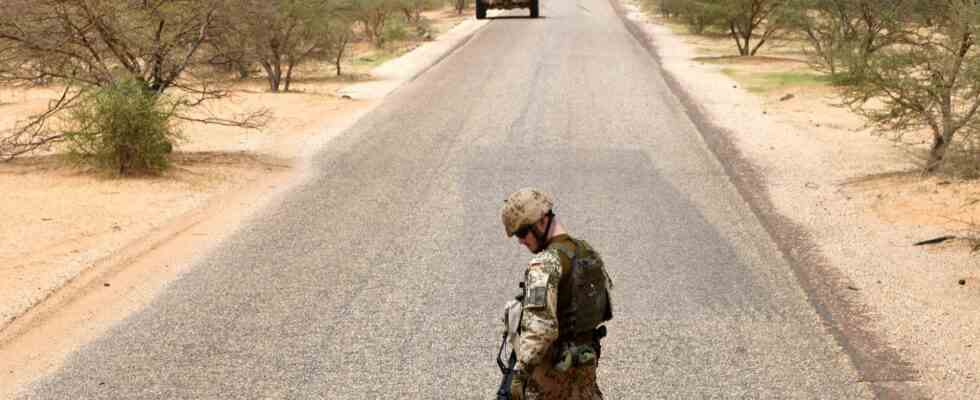Status: 11/23/2022 3:55 p.m
The federal government wants to end the Bundeswehr mission in Mali in a structured way. But who is pushing into the vacuum? In the neighboring countries, there are concerns about the stability of the entire region. This could also have consequences for Europe.
“May God protect us so that it doesn’t turn out like Afghanistan,” sighs Fatouma Alou Traore. She sells spices at the Banankabougou market in western Mali and has other worries than the withdrawal of German troops. Everything is getting more expensive, more and more customers are staying away – what does the withdrawal of troops from distant Europe mean?
They wouldn’t have brought anything anyway: “We haven’t seen any positive changes from the foreign troops,” she says – and many Malians think so.
More civilian casualties
In fact, the number of civilian casualties in the fight against jihadists and criminal gangs has recently increased rapidly. The decision by the Malian military junta to bring an estimated 1,000 Russian mercenaries into the country hasn’t changed that – on the contrary.
Human rights groups accuse the Russians of involvement in massacres of civilians. The fear: Due to the violence on the part of the government and their new friends, more and more Malians could join the armed groups. More and more could also be forced to flee and fill the detention centers around cities like Bamako.
Junta on obstruction course
At the same time, the Malian junta, which only last year overthrew the previously self-proclaimed transitional government, is deliberately making the work of the UN troops more difficult. For example, the Bundeswehr can hardly fly any more reconnaissance drones.
Armed groups can therefore not be spotted in time. This has consequences for the security of the 1,200 Bundeswehr soldiers, but also for the deployment of the UN units as a whole and the civilian population.
Russia’s goals
“The Russians don’t want their positions to be spied on,” says Ulf Laessing, head of the Konrad Adenauer Foundation’s Sahel program in Mali’s capital, Bamako. The Russian leadership sees that it “can really annoy the West.”
She pushed for the French to withdraw, and now she is working to get the Germans to leave too. “Germany is the biggest mission – if we go, then others will definitely go too.”
The violence is spreading across the region
Many have already left, including African countries. It’s not just the frustration with the government in Mali that drives them. Former troop contributors such as the Ivory Coast or Benin – previously safe countries on the coast – are now having problems resisting the violence from neighboring countries to the north, such as Mali, Burkina Faso and Niger.
“Today, the terrorist groups, strengthened by their success in the region, are looking for new fields of activity,” Ghana’s President Nana Akufo-Addo warned on Tuesday in his capital Accra at the “Accra Initiative” security conference. “The deteriorating situation threatens to engulf the entire West Africa region.”
Charles Michel, President of the European Council, promised military supplies “for defense purposes” in Accra. Europe is alarmed and fears that it will continue to lose respect and influence in Africa – and it fears further refugee movements from new crisis regions.
Controlled deduction
It is sounds like this that made parts of the federal government shy away from an immediate withdrawal. The mandate should be extended by a year for the last time in May 2023 in order to allow this assignment to expire in a structured manner after ten years, according to Berlin on Tuesday.
“It’s been a long time since it was just about Mali, it’s about the entire stability of West Africa,” says Ulf Laessing. And not only that: Mali would be another country that could move into the Russian sphere of influence. “From a geopolitical perspective, that would be a triumph for Putin.”
Fatouma Alou Traore, the spice merchant, is “sad that my country is going through difficult times”. She wants peace, ideally without foreigners, trusting in her own putsch president and her own army. A hope that is becoming more and more deceptive for the country, its people and perhaps the entire region.

